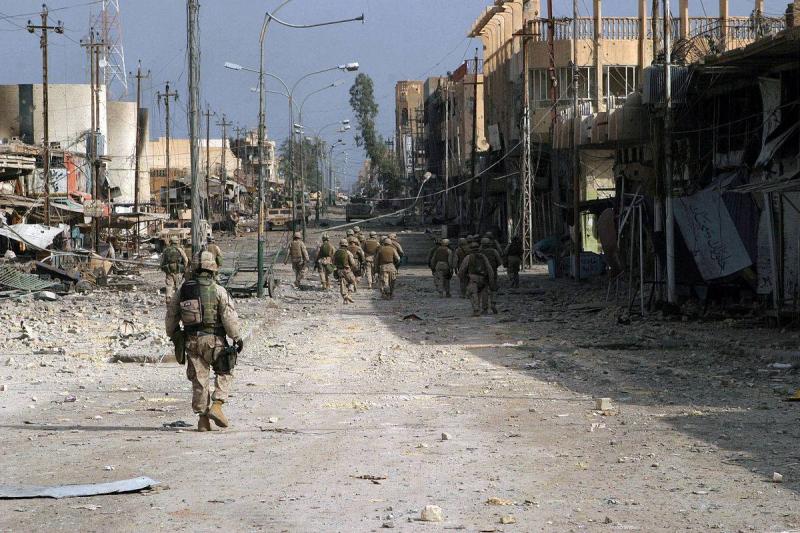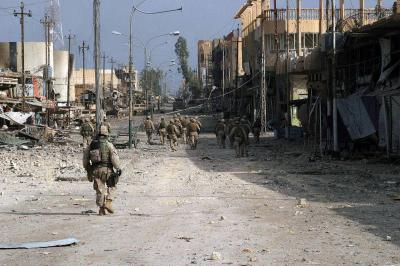Local residents in the city of Fallujah, in Anbar Province, demanded today, Thursday, international community intervention to save them from the lasting effects of the use of internationally banned weapons by U.S. forces, with about 147 out of every 1,000 newborns being born with congenital defects. Researchers also found that the number of breast cancer cases in females increased tenfold compared to figures from 2003, alongside cases of leukemia, infant mortality, and abnormalities in the normal sex ratio among the population in Fallujah, which are much greater than those reported for survivors of the atomic bombings in Hiroshima and Nagasaki in 1945.
In April 2004, U.S. forces launched an attack on Fallujah, located 50 kilometers west of Baghdad, but faced strong resistance from U.S.-opposing armed groups, which led the American forces to invade the city in November of the same year. According to local doctors and residents, U.S. forces used white phosphorus and depleted uranium munitions, resulting in catastrophic levels of congenital malformations and deformities due to contamination.
A local doctor in the city, who asked to remain anonymous, stated that there are no official figures regarding the overall situation of congenital defects in the city, but a study conducted in 2011 showed that about 147 out of every 1,000 newborns had congenital defects. Researchers also noted that the cases of breast cancer in females increased tenfold compared to 2003.
Another study published in the International Journal of Environmental Research and Public Health, based in Switzerland, in July 2010, indicated that "the increases in cancer, leukemia, infant mortality, and the natural sex ratio disorders among the population in Fallujah are much greater than those reported for survivors of the atomic bombings in Hiroshima and Nagasaki in 1945." The researchers found a 38-fold increase in leukemia in Fallujah compared to a 17-fold increase in the Japanese cities, according to the study.
Sadi al-Dhahibi, a 51-year-old doctor at a Fallujah hospital, stated, "What happened in Fallujah was extremely brutal. Americans used banned weapons, leading to increased cases of infertility in women, congenital defects, and cancer." The doctor recollected witnessing the battles in Fallujah in 2004. Two decades after the conflicts, the effects of U.S. use of internationally banned weapons remain.
Al-Dhahibi recalled, "I saw with my own eyes after the use of white phosphorus the corpses in the streets, especially in the Jolan neighborhood, which was the most affected district during the battles." A report by the United Nations Environment Programme in November 2007 noted that while the total quantity of depleted uranium munitions used during and after the U.S. invasion of Iraq in 2003 remained unknown, "estimates from various studies ranged between 170 and 1,700 metric tons." The reckless use of internationally banned weapons also led to an actual increase in rare congenital malformations in Fallujah.




